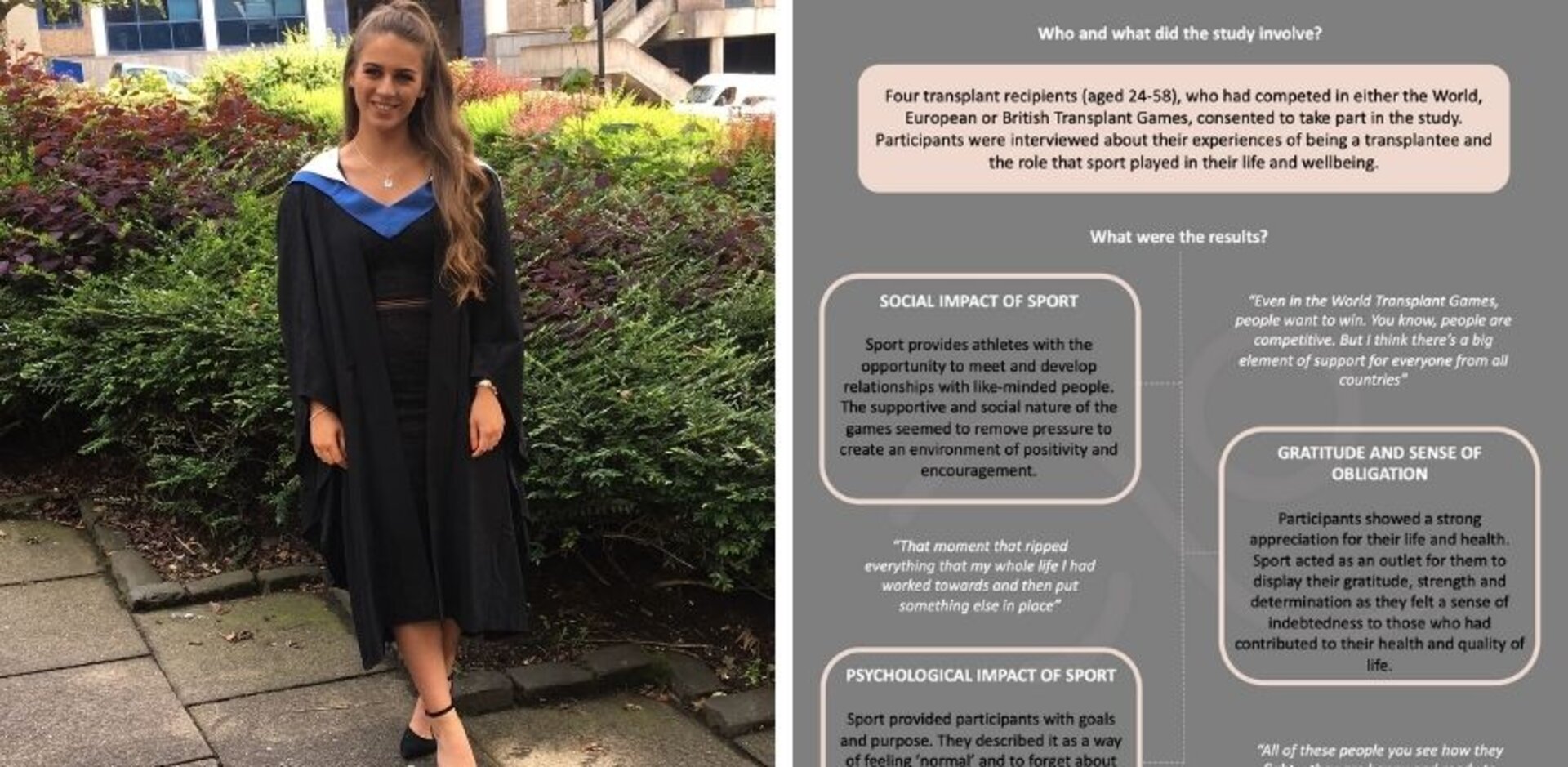GCU Student creates a social media buzz with innovative research

Second year DPsych Sport and Exercise Psychology student Sarah Findlay opens up on her ground-breaking study into the wellbeing of transplant athletes - touching on everything from the support of her lecturer through to the challenges of conducting interviews during a pandemic.
Q - How did the study all come about?
“My lecturer Elaine Duncan put forward the idea originally and it just caught my attention straight away. I think she was excited as I was that someone wanted to pursue it further.
Elaine was interested in transplant athlete’s wellbeing and I’ve had a bit of background in working with individuals that have a disability, so I’ve been aware of the effect sport can have on different populations like that.
I’ve seen the work that Transplant Sport UK do and I wasn’t aware of any real research evidence to back up their great work - to be able to provide that was an amazing opportunity for me.”
Q - Tell me more about the actual study – what was involved?
“Elaine’s husband is actually a transplant athlete so I got some really good contacts through that and managed to secure four interviews. I interviewed them about their experience of being a transplant athlete and the role that sport played in their life and wellbeing. Each of these individuals had completed in the World, European or British Transplant Games, so they were all performing at an elite level.
I was a bit worried beforehand about asking things that could be emotional for them to discuss but the way I conducted the interview was flexible. I wanted it to be led by them, so I gave prompts and asked open questions around their experience with their transplant and the benefit of sport. I didn’t really need to ask about health and wellbeing because it all came up naturally anyway.
Due to the coronavirus situation, I conducted the interviews over Microsoft Teams. As someone studying Psychology you don’t realise how much you rely on being able to read someone’s body language and just having that face to face contact with them.
Speaking to participants online has its positives as well, because it meant that I wasn’t limited to only working with people around Scotland - a lot of my participants were actually from down south.”
Q - What were your findings?
“There were three main sections of findings out of this study. We had the Social Impact of Sport, the Psychological Impact of Sport and Gratitude and Sense of Obligation.
For Social Impact, participants reflected on the nature of competing in the likes of the World Transplant Games actually seemed to remove pressure and created an environment of positivity and encouragement.
For Psychological Impact the study found that it provided them with a sense of purpose and allowed them to feel normal - forgetting about their health condition and being able to compete against people on a level playing field.
For Gratitude and Sense of Obligation they were all just incredible people - so strong and resilient. Sport acted as an outlet for them to show their gratitude whether that be to organ donors or hospital staff.
Q - The study created a bit of a buzz on social media – what were the thoughts of Transplant Sport UK?
“I obviously wasn’t going to send them my full research as I don’t think many people would want to read that! I put together an infographic that showed my findings and what the study was in a stripped back kind of way. I sent that over to Transplant Sport UK and they posted that on their social media channels.
It was received really well, we actually had a few people get in contact with us wanting to find out more and talking about future research.
Initially when I finished the project it didn’t feel as rewarding as I’d first hoped with all the difficulties around the pandemic, however it’s amazing now to see how interested people are in it! It’s also great for Elaine to see it take shape and actually go somewhere.”
By Ross Clark
Got an SHLS or GSBS story? Email me at Ross.Clark@gcu.ac.uk or message me on Twitter
